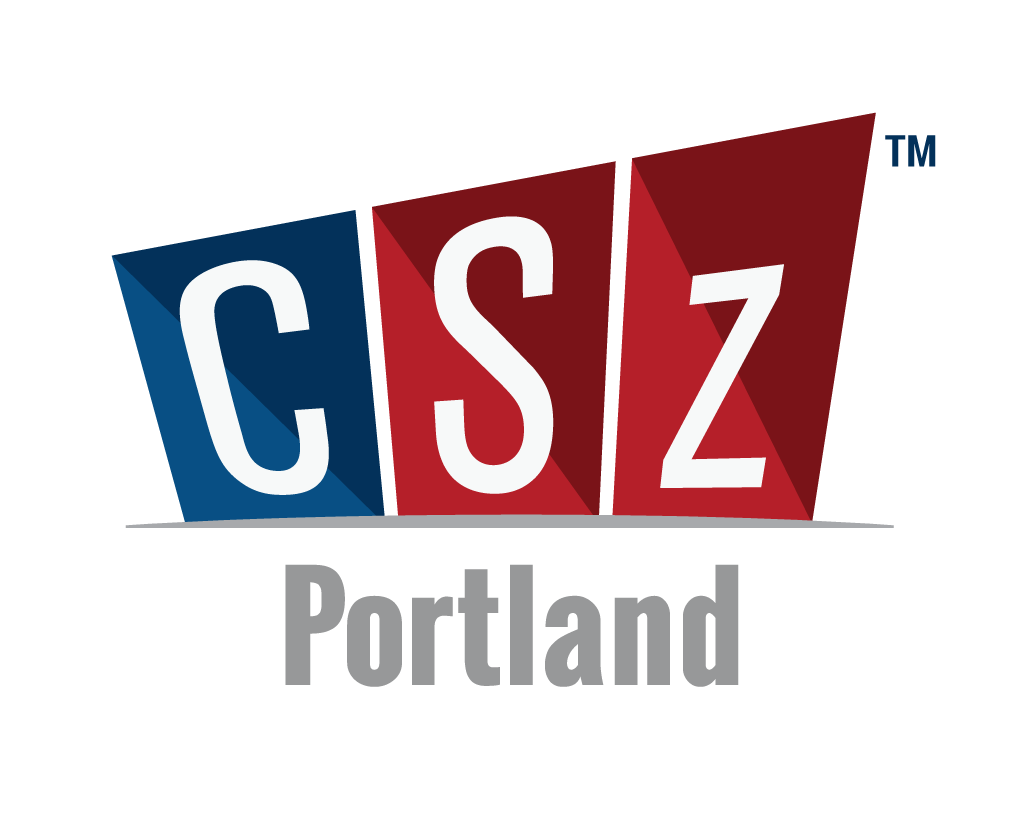
Sitting With Uncertainty
Professor, researcher and CSz Philadelphia improviser Dannagal Goldthwaite Young joins the Hidden Brain Podcast on a brilliant exploration of uncertainty vs certainty, and how these traits may divide or unite us.
https://podcasts.apple.com/us/podcast/sitting-with-uncertainty/id1028908750?i=1000671334611
Ruth Jenkins on The ComedySportz Podcast
CSz Portland’s Ruth Jenkins appears in Season 3 of the ComedySportz Podcast, discussing applications of improv in Speech Language Pathology, her CSz Nickname, her CSz origins and her personal meet cute story that involves 5 Things!
https://podcasts.apple.com/us/podcast/episode-38-ruth-jumping-jack-jenkins/id1493584575?i=1000673149911
Improv Makes a Difference for Kids, Too
We focus a lot of attention on our offerings for companies, and sometimes we forget the power of what CSz is doing for kids.
Lots of folks come to us because they have kids who are hilarious, future comedians. Check. We've got you covered. Our classes give kids a focus for their budding talents, and they even get to play in shows for their friends and families, as well as halftime appearances in our Professional ComedySportz Matches.
There's another, possibly more important side to our Youth Education program. This excerpt is from a blog piece on the CSz Richmond site, written by a parent:
"[The middle school years bring] on a tremendous amount of self-consciousness and things about yourself that never bothered before you are now going to doom you to a life of solitude on par with Superman in his icy hinterland. Physical changes make you not want to say or do anything because it will be analyzed and ridiculed by your peers until you are in tears.
‘We got it – the middle school years (and around those years) are horrible! So what…? What’s that got to do with CSz…’
My daughter, Audrey, was running headlong into this cycle. The beginning of 6th grade was difficult as she struggled for self-confidence, identity and to find acceptance. To that end, I would tell you that Audrey is the poster child for why middle schoolers should be with CSz Middle School League. CSz teaches kids that no one is perfect, mistakes are to be expected, and not worry about it. Be brave anyway. That message WILL help every kid at that stage in life where they become most self-aware and self-conscious. CSz breaks those negative norms that middle school kids try to impose on one another. A CSz kid says, “Be negative if you want to. But nope, that's not MY world.’
At first, for Audrey, CSz was just her Friday escape from that world but then she began to realize that those same confidence-building skills she practices every Friday are life skills. She began to bring those practices into everything. Now, she’s teaching those skills. She generous, giving, and hard working as she’s gone from playing tennis to teaching tennis; from helping with plays to being in plays; and from being a good basketball player to being the best teammate."
Greg goes to specify the skills Audrey learned:
- Confidence
- Learning from Mistakes
- Working Together as a Team
Sometimes, these classes can make all the difference. This is a letter we received from the mother of a student who really needed what we have to offer:
"[My son has] blossomed since his first class. He's taken some form of theater arts ever since. I could wax on about how it's helped him develop humor, empathy, dealing with surprise, transitions, how to appropriately interact with others, and built his confidence, but really I just want to tell you that what you're doing is very, very important. Thank you for making this club possible at Grant HS" - LG, parent.
Improv skills are very important in our volatile, uncertain, chaotic and ambiguous world. If our kids learn these skills, they can connect more readily to others and help the team to navigate reduce the volatility. We're proud to do this work and look forward to many more breakthroughs.
Thanks to CSz Richmond and parent Greg Sparrow for their blog piece, and letting us talk about it and reblog it. You can find the original blog piece here.
Status
The great improvisational teacher Keith Johnstone pioneered the idea of using status as a tool in improvisational theater. Human beings give each other physical and verbal cues to establish status. If someone has high status, they’re calling the shots; if someone has
low status, they’re the peon.
Status is a seesaw, Johnstone explains—you push one end down, the other end pops up. You can raise my status either by saying “I’m smart” or “You’re dumb.”
If you’ve ever walked toward another person on a sidewalk, or in a hallway and had to do an awkward little dance to figure out which side you’ll pass each other on, you’ve experienced one of the simplest example of a status battle.
We use the tool of status onstage to make our scenes more dynamic. We find that equal status situations aren’t very interesting to watch. It’s interesting that in real life, equal status (or near equal status with give and take) gets positive results.
These on-stage status battles aren’t too far removed from reality. In many organizations, maintaining one’s status is more important than getting anything done. We teach it to business people to help them understand the sub-textual power struggle at work in any human interaction.
Caught in a status battle? See what changes if you match the other person’s status. See what happens if you raise their status. Since status attacks are often the work of insecure people, try a little flattery. And look how status games connect to bullying.
In our work, we’ve found Status to have profound effects on Customer Service. We’ll post more on that soon.
Excerpted from Jill and Patrick’s Small Book of Improv for Business. Thanks to Jill Bernard for her essential contributions.
